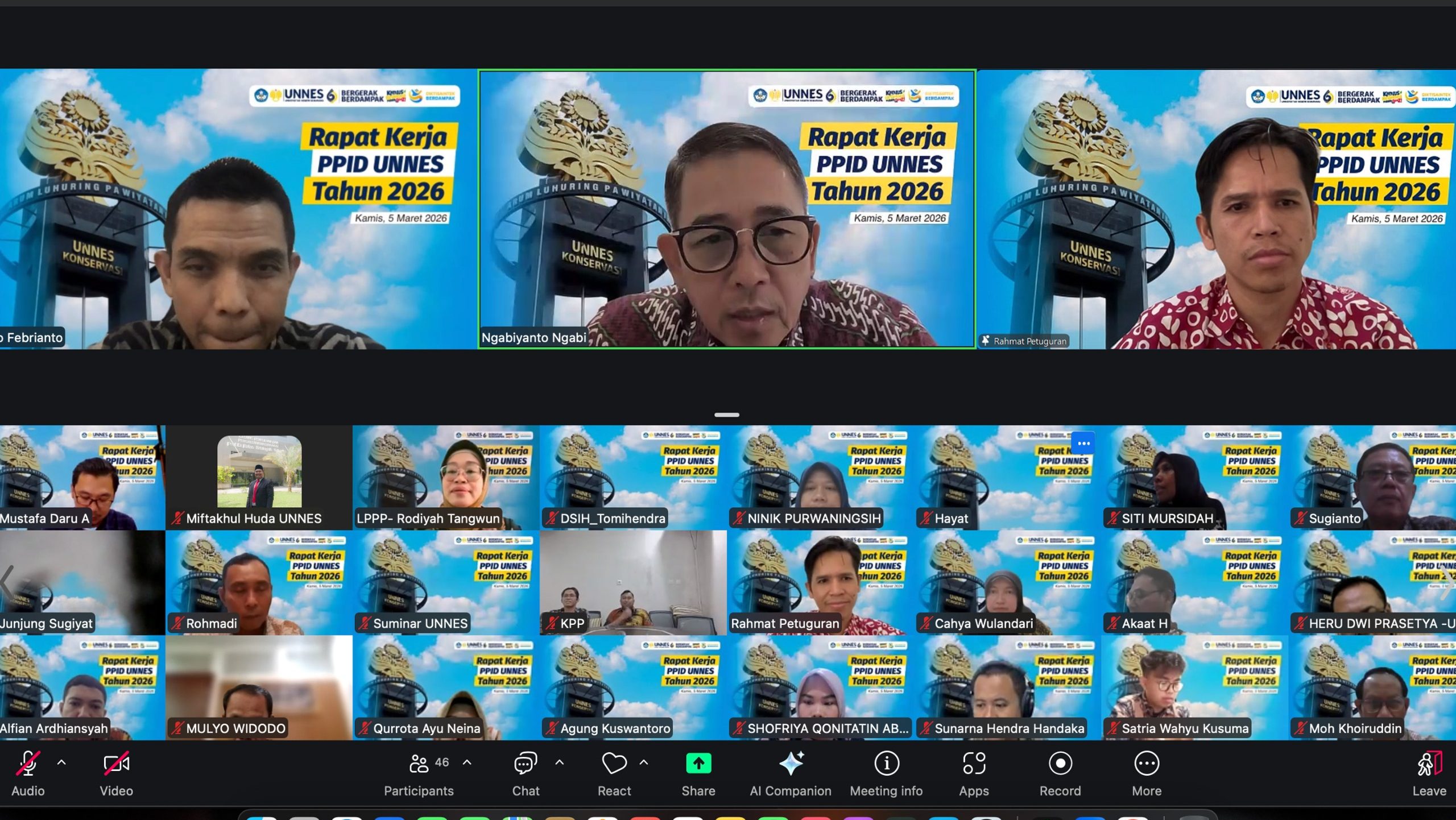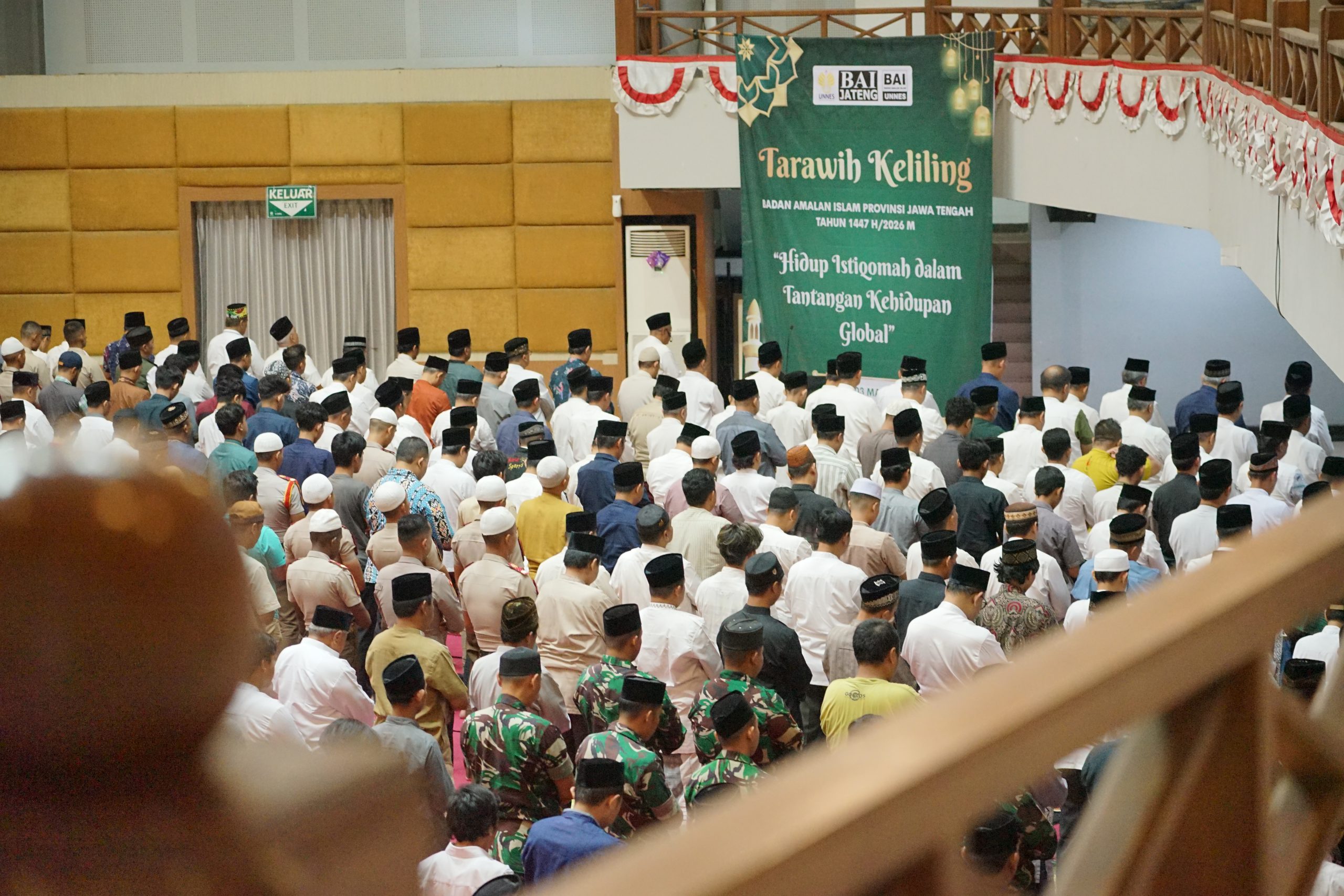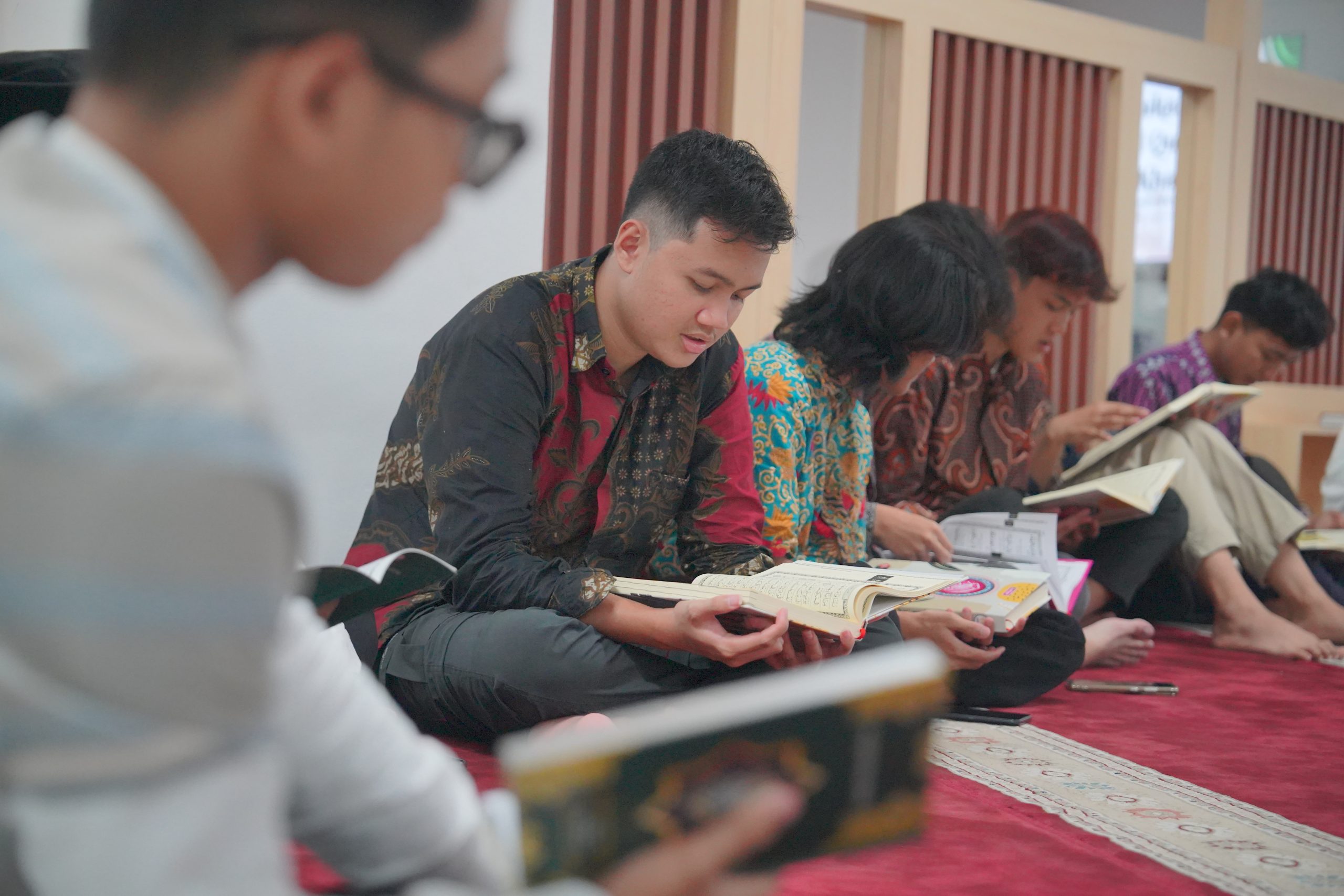Fakultas Ilmu Sosial Universitas Negeri Semarang (UNNES) menyelenggarakan Sarasehan Pancasila pada Kamis sore (1/6) bertempat di Gedung C7 Lantai 3 Fakultas Ilmu Sosial UNNES.
Ketua panitia Noorochmat Isdaryanto SS MSi menjelaskan sarasehan ini, mengkaji persoalan Pancasila perihal heterogenitas tafsir, heterogenitas sumber, dan cara memahami Pancasila.
Dekan Fakultas Ilmu Sosial Drs Moh Solehatul Mustofa MA mengapresiasi penyelenggaraan kegiatan ini sebagai upaya menambah kajian akademik tentang Pancasila.
“Diskusi kali ini sangat menarik, Karena akan dibedah melalui dua pendekatan utama yakni Sejarah dan Filsafat. Simpang siur hari lahirnya Pancasila harus dijelaskan, mengapa ada dan seperti apa itu“ Jelas Dosen jurusan Sosiologi dan Antropologi tersebut.
Kegiatan sarasehan kali ini, menghadirkan dua pembicara yakni Prof Dr Wasino MHum dan Prof Dr Suyahmo MSi.
“Polemik yang timbul dari peringatan hari lahirnya Pancasila adalah kapan terjadinya. Jika mendasarkan pada pidato Bung Karno 1 Juni 1945 maka benar bahwa Pancasila lahir pada tanggal tersebut. Namun perlu kita ingat, Negara Kesatuan Republik Indonesia (NKRI) lahir pada 17 Agustus 1945” jelas Prof Wasino.
Ia menambahkan, UNNES sebagai salah satu Lembaga Pendidikan Tenaga Keguruan (LPTK) yang membidangi aspek pendidikan termasuk Pendidikan Pancasila harus mampu memberikan kajian dan menemukan kebenaran dari hari lahirnya Pancasila.
Sementara itu, Prof Suyahmo memberikan penjelasan terkait perbedaan penetapan hari lahir Pancasila dari masa ke masa.
“Pada era Soekarno, penetapan hari lahir Pancasila adalah 1 Juni. Sementara era Soeharto memperingati hari lahirnya Pancasila pada 18 Agustus. Jelas bahwa beda era juga beda tanggal. Bahkan sekarang ini pada masa pemerintahan Presiden Joko Widodo, peringatan hari lahir Pancasila itu kembali pada tanggal 1 Juni” tambah Guru Besar Fakultas Ilmu Sosial UNNES tersebut.
Diskusi yang dimoderatori oleh Drs Ngabiyanto MSi ini, berlangsung hangat dengan diikuti oleh tanya jawab antara pembicara dan peserta.
Turut hadir Unsur pimpinan, Dosen, dan perwakilan aktivis mahasiswa dari Lembaga Kemahasiswaan (LK) dan Badan Semi Otonom (BSO) di lingkungan Fakultas Ilmu Sosial.
Kegiatan ini akan ditindaklanjuti dengan kajian-kajian ilmiah melalui Pusat Pengkajian Pancasila dan Karakter Bangsa (P3KB) UNNES yang terintegrasi dalam Tri Dharma Perguruan Tinggi.
Kegiatan sarasehan diakhiri dengan doa bersama dan buka puasa bersama.
(Dwi Hermawan, Student Staff)



